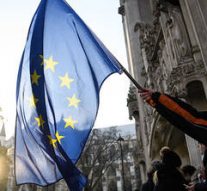
A bitter beginning
Economy 30 January 2017A European economic hypocrisy will continue its existence in 2017. What the EU has inherited from the previous year are (almost) stable economic semester`s parameters and consolidated finances within the national level of its member states. As the 2016 was very dynamic year in political terms, the spill-over effect will be visible in the economic and financial spheres. Several key political elections within the most important member states are scheduled to be held in 2017. There will be presidential and parliamentary elections in France. Germany and the Netherlands are also expected to have the elections while local elections will be held in Portugal. The EU will also be burdened with the (un)certain Brexit situation, which could impede overall European economic growth. Why Europe will become even more vulnerable in 2017? What are the key challenges for the European Commission and why Europe is facing with bitter beginning?
According to the views and economic forecasts of many analysts, a tough year is ahead European Union. The EU is “under attack” from many potential events such as the right wing parties` strengthening all across the member states, which could mostly be topical at the national elections. When analyzing the European economy, many other worldwide economic challenges should be taken into consideration. According to the “National Interest” magazine, right on, the European instability is recognized as one of the global challenges for 2017. The Euroarea will grow for only 1.15% which is the lowest growth rate in the last decade. European economies will continue “muddling through” in 2017, with 1.4% growth driven almost entirely by fiscal stimulus. The European Central Bank in December 2016 has issued forecasts for 4 years, 2019 inclusive. Out of all “big players”, France will be the only country to achieve economic growth in the next three years. German economic growth will be more-less stagnating over the mentioned period.
The fiscal stability rate of not only Euro area countries, but the EU as a whole, will vary, and will be depending on the negotiations with Britain over the economic and monetary union issues. If both sides express intention through which they could still cooperate within the four freedoms, it should not importantly create an influence to the Union`s fiscal and economic stability. On the other side, if Britain (or the European Commission) decide to simply split the negotiations in sense of breaking ties with each other, that would open another economic Pandora box. What will be the consequences of the Brexit for the overall EU macroeconomic position, remains to be seen. In December 2016, British PM Mrs. Theresa May announced that “no further talks on the four freedoms could be subject of negotiations within the EU-exit menu”. French and German officials claimed that this statement meant “absence of British willingness to enter fair negotiations”.
Beside the Brexit issues, rise of far right wing parties within the national member states of the EU could also impede the ongoing European project. In some states such as Austria, Croatia, France and the Netherlands, it is remarkable how the big influence is being made through the far right wing parties` activities. The process is even “helped” with the presidential electoral win of Mr. Trump in the USA.
As Global Agenda Council on Europe Report for 2016/2017 predicts, the TTIP negotiations and termination of parts of the agreement could make an everyday EU life even more bitter. Negotiations for a Transatlantic Trade and Investment Partnership started in 2013 and dragged on slowly throughout 2014 and 2015. US presidential elections in 2016 and mounting political opposition in Germany and some other EU countries could well delay an agreement into 2017 or beyond. Since the focus of TTIP is on removing regulatory obstacles to transatlantic business, the economic impact is hard to predict. Most economists expect it to be modest but positive. More significant would be the political signal that would be set by the world’s two biggest economic blocs, the EU and the US, together shaping the rules of global trade.
The European public have witnessed many turmoil-events in 2016. The real consequences will eventually be seen by the end of 2017. The new version of TTIP will be presented by Trump`s administration, the future of economic relations with the Brexit adventurer will be clearer and the Euro area consolidation agreement should be achieved. This will be, for sure, a year of important tests for the Brussels, and maybe the bitter beginning will motivate all of the stakeholders to work more. But will we have a bitter end?




